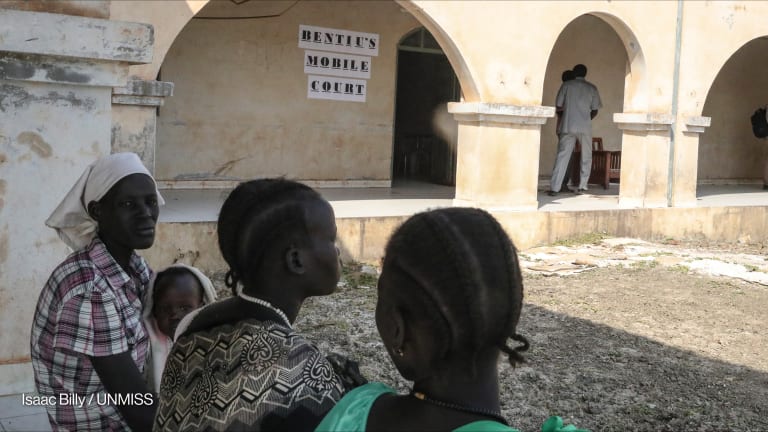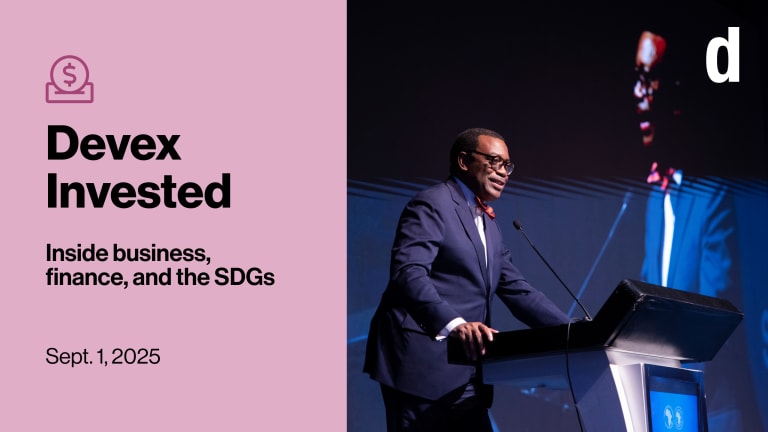
EDITOR’S NOTE: The post-2015 development agenda mentions securing property rights. In an exclusive opinion for Devex, Karol Boudreaux from the Omidyar Network explains why these rights matter and must be defended to empower the poor, especially in Africa.
The post-2015 debate is heating up. Earlier this month, the U.N. High Level Panel released its report — a road map for the direction these discussions could take.
Among the report’s key themes are a focus on eradicating abject poverty (Goal No. 1) and dramatically improving equality (Goal No. 2) A thread tying these goals together is a new, and welcome, spotlight on securing the property rights of women and men. Goals 1 and 2 both include specific targets related to improving these critically important rights.
This is not just a case of “what’s old is new again.” The report is not advocating for the kind of large-scale, top-down land reforms that marred development efforts and drove conflict in the past. Instead, new attention is focused on encouraging bottom-up, participatory efforts that recognize and formalize the legitimate rights that individuals (including women and girls), communities and businesses hold to a variety of resources (land, water, forests, etc.) Thinking in common law terms, the focus is on thickening the bundle of rights that people hold over a variety of assets.
We know why this matters: Strengthening rights to land, natural resources, and other assets empowers people to decide, based on their tacit and local knowledge, how best to use their assets. Add in increased decision-making authority with legal rights to benefit from valued uses of property, and you get improved incentives to invest in families, children, farms and businesses. It is worth underscoring that the poor — whether informal urban entrepreneurs or smallholder farmers — are by far the largest group of businesspeople in the world. And, as highlighted in the recent report Accelerating Entrepreneurship in Africa, improving property transfer procedures will strengthen business opportunities.
Particularly in Africa, giving women and girls more secure rights to use property and to buy, sell, and inherit familial, marital and business assets will provide them with these incentives as well. It will bring more women into markets, allowing them to use their entrepreneurial skills. With the enhanced decision-making authority that comes from controlling assets, we know women devote resources to feeding and educating their children, a boon for the future.
The HLP report follows hard on the heels of last year’s landmark property rights achievement: the unanimous adoption by 96 countries and the European Union of the Voluntary Guidelines on the Responsible Governance of Tenure of Land, Fisheries and Forests. The VGs encourage governments to formalize customary tenure rights, strengthen women’s land and resource rights and recognize and respect the tenure rights of indigenous people. They enshrine principles of transparency and accountability in land governance and provide guidance on issues as diverse as market-based investments, taxation and valuation, and post-conflict land concerns.
In its meetings last week, the G-8 made new commitments to help improve land transparency, notably in Africa. This should help reduce the level of opaque and corrupt transacting in land that contributes to wrongful displacements, violence, and lost livelihoods.
This confluence of interest in and advocacy for improving land, resource and assets rights presents a unique, even historic, opportunity for change. If African governments partner with civil society, the private sector and committed donors to seriously engage on these contentious, sensitive issues millions of people — from displaced rural villagers to urban slum dwellers — will have the chance for a safer, more peaceful, and more prosperous future.
Join the Devex community and access more in-depth analysis, breaking news and business advice — and a host of other services — on international development, humanitarian aid and global health.








